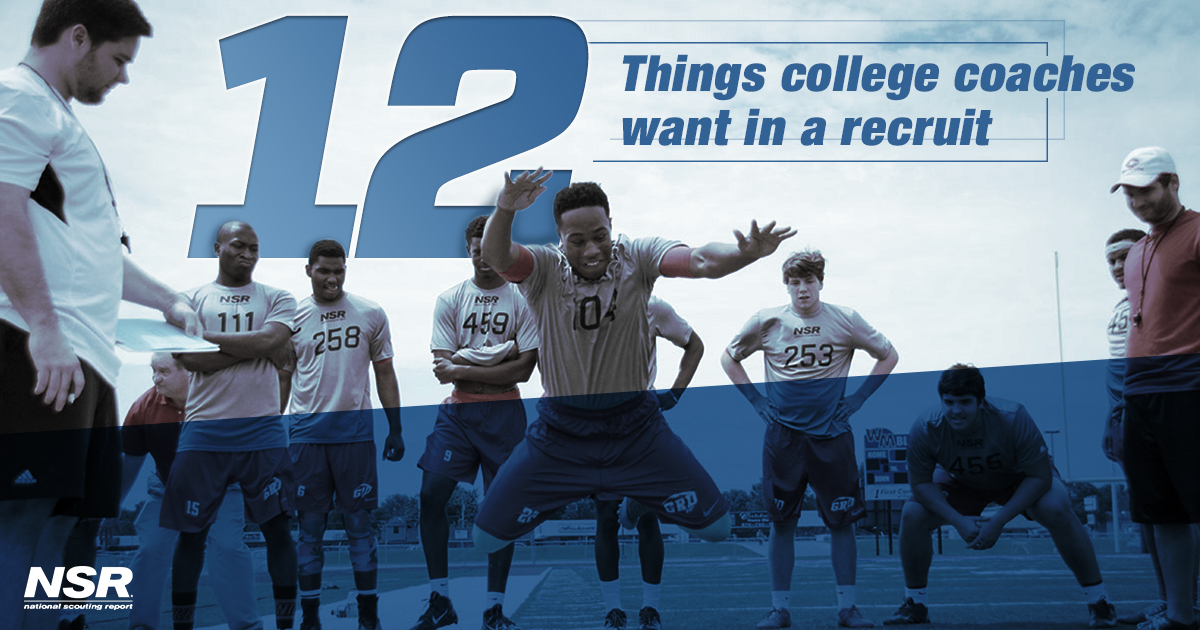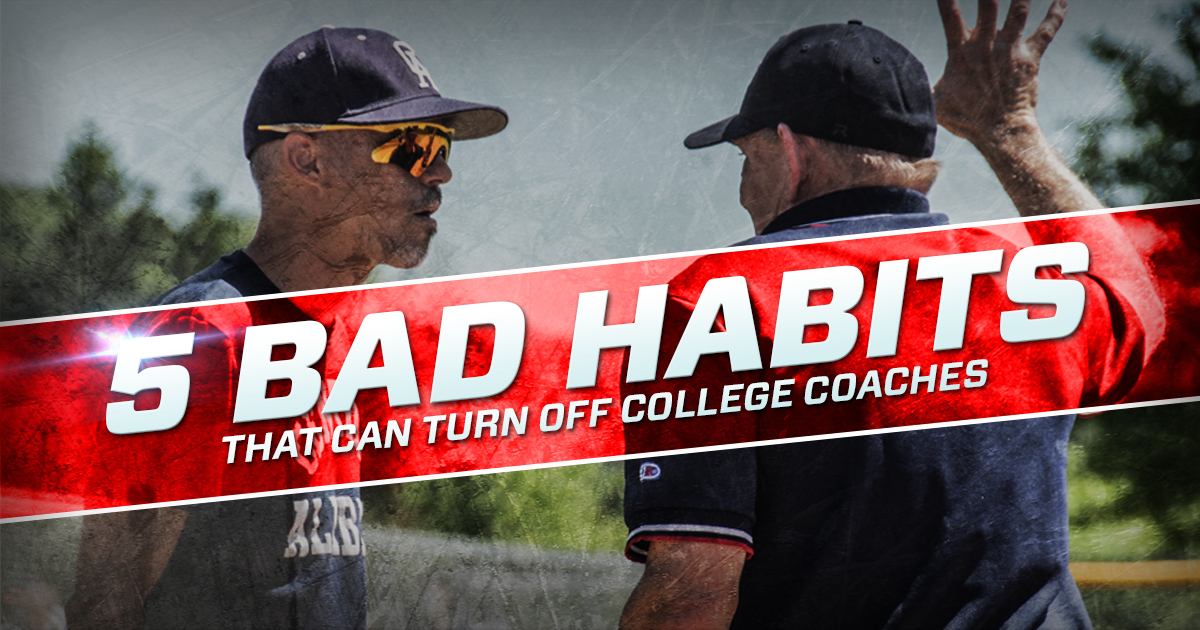
12 things all college coaches want in a recruit
An athlete’s athletic ability is something college coaches look for when recruiting.
But there are some other traits college coaches want in a prospective student-athlete.
Athleticism: First and foremost, you must have the skills to play in college. Or at least skills that match what a college coach is looking for in your recruiting class. Solid academics: You must prove that you can thrive in an academic setting. The NCAA no longer allows high school student-athletes to become eligible as college freshmen.
In DI, and soon in DII, you must pass 16 core courses in high school to academically qualify to play sports as an incoming freshman in college. Then by the conclusion of your second year of college, you must complete 40% of the coursework necessary toward your degree. Followed by 60% at the completion of your third year and 80% by the end of your fourth year. This is no cake walk. If you aren’t ready for the academic focus required by the NCAA, in high school or college, you will not survive.
Good Character: You must consistently demonstrate that you can be a positive representative of the college once you arrive. In high school, joining clubs, participating in community volunteer projects, holding down a part-time job — these are ways to exhibit good character. As important is having written letters of recommendation from community leaders.
Work Ethic: College coaches want athlete’s who have impeccable work ethic. You must have a strong work ethic and prove it through documentation and references. Recording your workouts and practices with details of what you accomplished is an excellent way to show that you have put in the hours athletically. Confidently discussing your academic habits is another. And, again, getting written letters of recommendation from your coaches, teachers and community leaders will also impress college coaches.
Team Player: You must be willing to do what is best for the team. Many freshmen college athletes find it hard to get playing time or to break into the top group of athletes on the team. That’s natural because older teammates have earned their place over time while you are, well, a rookie. As a freshman, you are starting over from scratch. Having come from being one of the stars on your high school team makes it difficult, mentally, to stand in the background. So, many coaches ask first-year students to take on unfamiliar roles at first to gain confidence. A team player does this without question or complaint. Knowing this and telling a coach that you can bide your time for the team until your opportunity presents itself is a huge plus to any college coach.
Hustle: You must exhibit an understanding of the impact which hustle has on all aspects of competition. Whether during practice, in pre-game, in starting or substitute positions, and during the off-season, hustle is an intangible that influences the outcomes of games and the mentality of opponents more than any other single aspect of athletics. If you’re a good hustler, you can have an immediate impact on any college team or program. But, you must have consistently shown this in high school and club sports. Part of what others, especially your coaches, need to be saying about you is their admiration for the effort you have always given. Sports IQ: You must have actively demonstrated an in-depth knowledge of the game in high school and club/travel teams. Thinking, not just doing. Learning, not just playing. Anticipating, not just reacting. These are the mental aspects of the game which coaches at the next level cherish. Developing a reputation for being a smart athlete is something college coaches want and need recruits to have to be ready to play as a first-year student-athlete.
Maturity: You must be capable of making mature decisions when you are with and away from your coach and team. Far too many good high school athletes have a sense of entitlement. They think that they are entitled to do things which other students or less skilled athletes are not allowed to do. That is not the case at all and most, get caught and permanently damage their reputations and future opportunities. Bad decisions in high school can be life-changing moments. Also, college coaches want mature student-athletes on their roster or squad because they know they can be trusted. College athletics isn’t easy and requires a lot of time management. That is a skill mature student-athletes seem to obtain easier than those students who lack maturity.
Competitiveness: You must want to be a winner. Most college coaches highest priority is not to win games but to keep their jobs. Winning is certainly a big part of accomplishing that objective. Therefore having highly competitive teams is always at the forefront of any coach’s mind when offering scholarships to high school prospects. Seeing your competitive drive during the recruiting phase is something coaches want and need to look at from prospective student-athletes. Athletes can demonstrate this by going through pre-game drills with focus and intensity, by being mentally locked into the challenge ahead when others are being overconfident or nonchalant, and by encouraging other players to do their best throughout the game, win or lose.
Honesty: You must be truthful with your coach and team. One of the most complimentary things any teammate, coach or parent can say about a prospect is that he or she is honest. No one likes a liar. No one wants to associate themselves with a liar. And, no college coach wants to recruit a liar. If you can’t be trusted, then it will make your college recruiting experience very difficult. Ambition: You must have a genuine desire to be a champion. When talking to college coaches, it’s important to ask questions about the future of the program. Ask if the coach sees potential in winning a championship while you are at the school and how the coach sees you contributing to that goal. Prove that you will be an impact player. Tell the coach that you want to be a part of something special, not just another member of a college team. Yes, being a college athlete is the dream, but college coaches want an athlete who has the desire to make a difference for their program.



